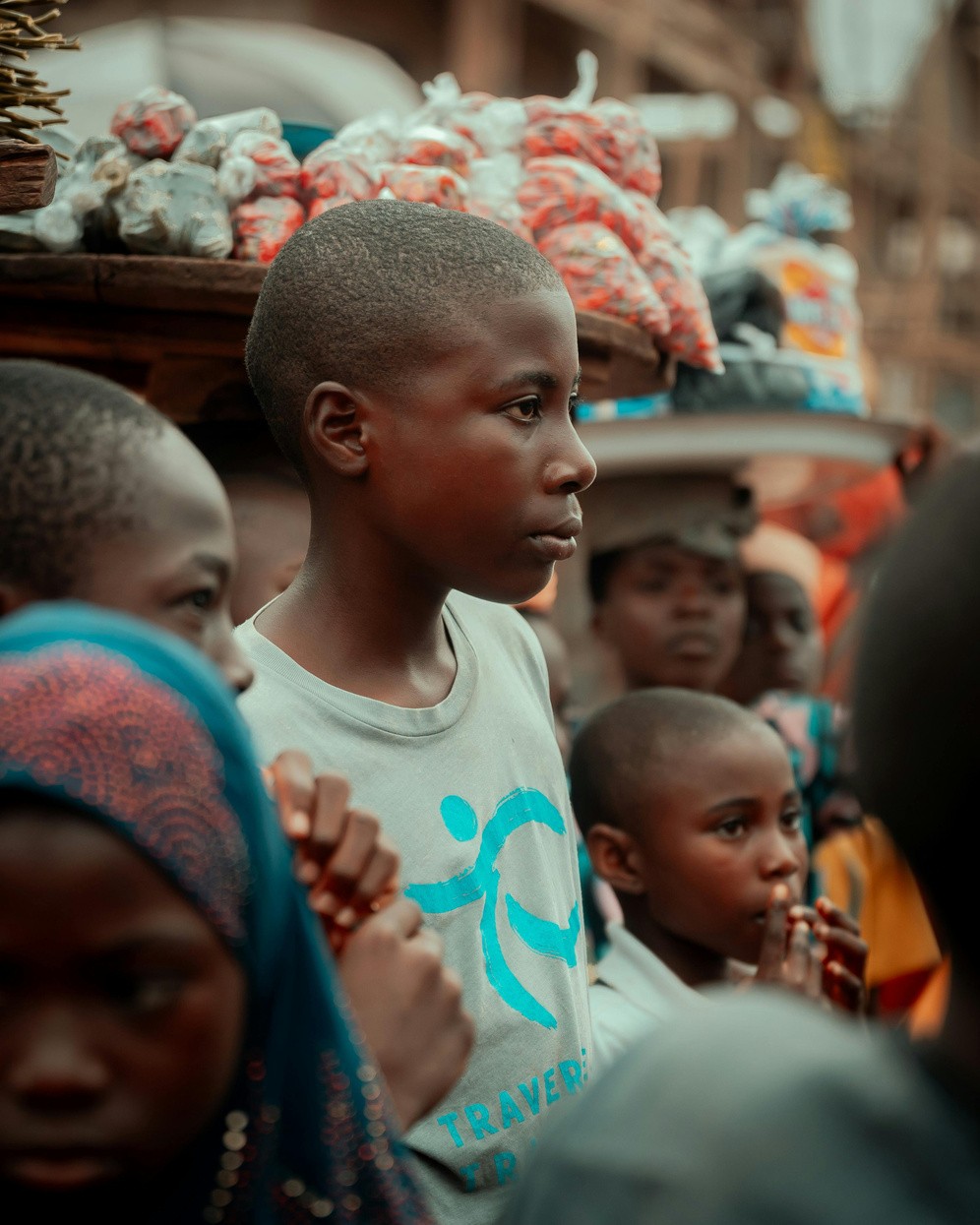Poverty and Inequality In Nigeria
With over 133 million people living in multidimensional poverty, Nigeria is facing a deepening poverty and inequality crisis. Despite its vast resources, natural and physical including over 110 million labor force, the number of households becoming poor is increasing everyday. Structural challenges, high cost of governance, low public investment and economic imbalances continue to trap millions in deprivation, threatening the country’s long-term stability and growth prospects.
Critical drivers include:
1. Low Public Investment in Human Capital
• Nigeria spends only $220 per person annually), one of the lowest globally (Hernandez et al., 2022).
• Chronic underfunding of education, healthcare, and social protection limiting access to quality services and economic mobility.
2. Unemployment and Poor Remuneration
• Despite a 4.3% official unemployment rate, 93% of employed Nigerian’s are in informal employment.
• Lawmakers earn an average of N174 million annually, while many workers earn less than N1 million per year (Oxfam, 2024).
• Skilled workers, especially in healthcare, emigrate due to poor conditions, leaving Nigerian with a density of 1.83 health workers per 1,000 people—below the WHO minimum of 4.45.
3. Food Insecurity and Malnutrition
• Over 39 million Nigerians face severe food insecurity, with 73.9% experiencing moderate to severe hunger (FAO, 2024).
• Rising food prices and inflation worsen nutrition, causing 45% of child deaths and affecting 2 million children (UNICEF, 2023).
• 7% of women of childbearing age are malnourished, impacting their ability to work and provide for their families
Key recommendations for government
1. Increase Public Investment in Human Capital –Allocate at least 15% of the national budget to education, improve healthcare spending, and strengthen social protection programs.
2. Strengthen Public-Private Partnerships for Job Creation – Expand vocational training (e.g., NISDP, N-SKILL, T-MAX) and implement targeted tax incentives for businesses that create jobs.
3. Reform Wage Policies – Adjust wages to reflect inflation trends, enforce minimum wage laws nationwide, and improve labor rights.
4. Scale Up Social Protection and Agricultural Investment – Restore NSIP and revive agricultural financing programs to improve food security.
Nigeria is Africa’s fourth-largest economy, with a Gross Domestic Product (GDP) of $362.8 billion . It is also the continent’s largest crude oil producer, holding proven reserves of 37 billion barrels and a daily production capacity of 1.5 million barrels per day . Despite these abundant natural resources, a favorable climate for agriculture, 36.8 million hectares of arable land and a large and growing labor force of over 110 million, the country faces an alarming paradox: over half of its population lives in poverty, and the situation is worsening with economic inequality reaching extreme levels.
According to the NBS Multidimensional Poverty Index (MPI) Report (2022) 133 million Nigerians are multidimensionally poor, living below the $2.15 international poverty line. Poverty in Nigeria is not just about income, it is a complex crisis that is being driven by lack of access to quality education, health care services and low living standards. Figure 1 and 2 below illustrates how these factors contribute to the persistence of poverty in Nigeria.
Table 1: Inequality Outlook
Source: World Bank (2023)
The consequences of this rising poverty and inequality are severe and far reaching. Economic hardship has fueled surge in crime, insecurity, banditry, and theft, particularly in states like Sokoto and Zamfara where poverty rates exceed 90% and 75% respectively. Several studies have confirmed that rising poverty and inequality in Nigeria are directly linked to growing insecurity, theft and violent conflicts (Ajodo-Adebanjoko & Walter, 2014; Okolie et al, 2019 and Kudaisi & Ojeyinka, 2023).
Thus, the pressing question is: What specific policy measures can effectively reduce multidimensional poverty and inequality in Nigeria to ensure sustainable economic growth and stability in Nigeria?
Key Issues Driving Poverty and Inequality
LOW PUBLIC INVESTMENT IN HUMAN CAPITAL
Nigeria’s chronic underinvestment in human capital is one of the major drivers of this issues in the country. Despite recent increases in national budgets, spending on key sectors remains critically low and continues to decline in real terms. In 2022, the World Bank reported that Nigeria spends only $220 per person annually which is approximately 12 % of the GDP. As a result Nigeria was ranked 167th out of 174 countries in human capital development (Hernandez et al., 2022)
Figure 3: Public Spending by Sector (2024 vs 2025 Budget)
Source: Budget Office of the Federation, 2025
Even though the 2025 national budget has grown by 49.9% to N54.9 trillion compared to N27.5 trillion in 2024, spending on key sectors has declined as a share of total public spending. Education, for example, receives only 7.12% allocation, far below UNESCO’s recommended 15% and the same decline is seen across other key sectors. This chronic underfunding limits the people’s ability to access quality education, health care, and social benefits, reducing opportunities for upward mobility and entrenching intergenerational poverty.
UNEMPLOYMENT AND POOR REMUNERATION FOR WORKERS
Although unemployment in Nigeria was reported to have decline from 5.3% to 4.3% in Q2 2024, this figure does not reflect the true state of joblessness. Informal unemployment remains incredibly high at 93%. This is concerning as informal unemployment is often defined as including shadow and even illegal economic activities. One of the biggest contributors to this crisis is the poor wages. Salaries paid to workers have failed to keep pace with rising inflation, leaving many workers earning far below a living wage
Source: World Bank
Only 15 % Nigerians hold paid wage jobs or an apprenticeship and less than half of the wage workers have any written contracts, meaning majority of them receive no additional benefits and are job insecure (Jonathan & Pape 2024).
After several agitation and strikes by the labor unions the minimum wage was increased from N30,000 to N70,000. However, many states are yet to fully implement this, and some workers still earn below this threshold despite working full-time. In stark contrast, lawmakers according to Oxfam earn disproportionately high salaries and allowances with a Nigerian Senator taking home an average of N174 million annually, while many workers from whose taxes they are being funded earn less than N1 million in a year
These extreme wage disparities, rising cost of living and flaunt of publicly amassed wealth by the politicians have triggered anger and frustration in the citizens resulting in protest and strike actions. This has also fueled the mass exodus of skilled workers from the country, further dampening potential growth prospects. In 2022 over 16,000 skilled worker visas were issued to Nigerians, majority of whom were medical doctors, nurses and management consultants, seeking employment opportunities in the United Kingdom. This brain drain has worsened critical sectors like healthcare, where Nigeria has only a density of 1.83 skilled health workers per 1,000 people, far below WHO’s minimum recommendation of 4.45 (Olatunji et, al., 2024)
3. Food Insecurity and Malnutrition
Food insecurity is both a cause and effect of poverty and inequality in Nigeria. With over 39 million Nigerians classified as severely food insecure and 73.9% of the population facing moderate to severe food insecurity, access and affordability of nutritious and adequate food has become a privilege rather than a basic right.
Rising food prices and inflation have made nutritious food unaffordable for millions of low-income households, forcing families into consuming less nutritious diets. The 2024 FAO state of food security report highlighted that over 79% of Nigerians cannot afford a healthy diet. This has deepened the cycle of poverty and inequality, particularly among children and women.
Policy Recommendations
1. Increase Public Investment in Human Capital
Public investment in human capital is essential for reducing poverty and inequality. However, Nigeria’s public spending especially in critical human development sectors are at a new low, falling short of global standards. In a time of rising poverty and economic hardship, underfunding these sectors only increases the poverty rate and worsens long-term inequality. To close this gap, the government must cut the cost of governance and increase budgetary allocations, ensuring education funding reaches at least the 15% UNESCO’s recommendation. The same should be done for healthcare and other key sectors. Expanding access quality education and healthcare are proven drivers of economic growth. Studies have shown that every $1 spent on education can generate up to $15 in economic returns (UNESCO, 2012). Furthermore, a “living wage” that reflects the current economic realities of workers should be implement as this would enhance overall productivity and economic growth.
2. Strengthen Public-Private Partnerships for Job Creation
The government has been making effort to provide job opportunities in the public sector recently, but this has failed to meet up with the pace of the growing population. A better approach to addressing this issue is for the government to work closely with the private industries through Public-Private Partnerships (PPPs) to expand job opportunities. This should include scaling up the vocational training programs, such as the National Industrial Skills Development Programme (NISDP) and T-MAX, to equip people with skills that better align with job market demand, reducing the skill mismatch problem. Additionally, as the country embarks on tax reforms, to encourage businesses to hire more workers, tax incentives should be structured to reward businesses that demonstrate measurable job creation. This could include tax credits for firms investing in human capital development, tax breaks for high employment sectors like manufacturing, and agriculture, and financial support for startups driving innovations. These steps would make it easier for businesses to grow and hire more workers.
3. Scale Up Social Protection Programs and Agricultural Investment
Currently, the percentage of funding to social protection is 1.08% of public spending, which is too low considering the rising poverty rates in Nigeria. The social protection programs are meant to reduce poverty and inequality, but often they fail to reach the people who need them most due to inefficiency of the system and corruption. The recent suspension of the National Social Investment Program (NSIP) in has left millions of vulnerable Nigerians without any support, which has resulted in worsened poverty. The government should unfreeze the NSIP accounts, strengthen oversight and ensure that funds are used transparently to prevent further mismanagement. Furthermore, due to the increasing percentage of the poor people needing assistance, funding to this sector which should also be increased. As food insecurity continues to increase, programs like the defunct Anchor Borrowers Programme which created over 250,000 direct jobs and 1.25m indirect jobs has showed that well-structured agricultural financing can make a great impact.[1] An improved version of the ABP should be introduced to provide affordable credit, farming inputs and market access to smallholder farmers. This will not only address the lingering food insecurity in the country but also create jobs and improve rural livelihood.
This briefing shows how poverty and inequality crisis is deepening in Nigeria with over 113 million people living in extreme poverty. It also provided a critical perspective on the key factors underlying the issue of rising poverty and inequality as millions of households have been struggling to afford basic needs and nutritious food. To address these issues, the briefing proposes some policy recommendations, including increased investment in human capital, job creation through PPC, wage adjustment and enhanced social safety nets. If well implemented these measures hold particular promise that would lift millions out of poverty and also lay the foundation for a long-term economic progress. But achieving these outcomes requires intentional and concerted efforts on different fronts and players. The government must take the lead by adopting transparent and targeted polices that are aimed at addressing the widespread poverty and inequality while the private sector plays the supporting role of workforce development and job creation.


 English
English
 Arab
Arab
 Deutsch
Deutsch
 Português
Português
 China
China




